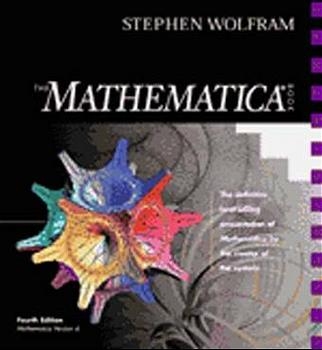
The MATHEMATICA ® Book, Version 4
Cambridge University Press (Verlag)
978-0-521-64314-6 (ISBN)
With over a million users around the world, the Mathematica software system created by Stephen Wolfram has defined the direction of technical computing for the past decade. The enhanced text and hypertext processing and state-of-the-art numerical computation features will ensure that Mathematica 4, takes scientific computing into the next century.The Mathematica Book continues to be the definitive reference guide to this revolutionary software package and is released in this new edition to coincide with the release of the new version of Mathematica.The Mathematica Book is a must-have purchase for anyone who wants to understand the opportunities in science, technology, business, and education made possible by Mathematica 4. This encompasses a broad audience of scientists and mathematicians; engineers; computer professionals; financial analysts; medical researchers; and students at high-school, college, and graduate levels. Written by the creator of the system, The Mathematica Book includes both a tutorial introduction and complete reference information, and contains comprehensive description of how to take advantage of Mathematica's ability to solve myriad technical computing problems and its powerful graphical and typesetting capabilities.
Part I. A practical introduction to Mathematica;1.0 Running Mathematica; 1.1 Numerical calculations; 1.2 Building up calculations; 1.3 Using the Mathematica System; 1.4 Algebraic calculations; 1.5 Symbolic mathematics; 1.6 Numerical mathematics; 1.7 Functions and programs; 1.8 Lists; 1.9 Graphics and sound; 1.10 Input and output in notebooks; 1.11 Files and external operations; 1.12 Special topic: the internals of Mathematica; Part II. Principles of Mathematica: 2.1 Expressions; 2.2 Functional operations; 2.3 Patterns; 2.4 Transformation rules and definitions; 2.5 Evaluation of expressions; 2.6 Modularity and the naming of things; 2.7 Strings and characters; 2.8 Textual input and output; 2.9 The structure of graphics and sound; 2.10 Manipulating notebooks; 2.11 Files and streams; 2.12 MathLink and external program communication; 2.13 Global aspects of Mathematica sessions; Part III. Advanced Mathematics in Mathematica: 3.1 Numbers; 3.2 Mathematical functions; 3.3 Algebraic manipulation; 3.4 Manipulating equations; 3.5 Calculus; 3.6 Series, limits and residues; 3.7 Linear algebra; 3.8 Numerical operations on data; 3.9 Numerical operations on functions; 3.10 Mathematical and other notation; Formula gallery; Graphics gallery; Appendix A. Mathematica reference guide: A.1 Basic objects; A.2 Input syntax; A.3 Some general notations and conventions; A.4 Evaluation; A.5 Patterns and transformation rules; A.6 Files and streams; A.7 Mathematica sessions; A.8 Installation and organization of system files; A.9 Some notes on internal implementation; A.10 Listing of major built-in Mathematica objects; A.11 Listing of C functions in the MathLink library; A.12 Listing of named characters; A.13 Incompatible changes since Mathematica Version 1; Index.
| Erscheint lt. Verlag | 28.2.1999 |
|---|---|
| Zusatzinfo | 200 Line drawings, unspecified |
| Verlagsort | Cambridge |
| Sprache | englisch |
| Maße | 217 x 240 mm |
| Gewicht | 3015 g |
| Themenwelt | Mathematik / Informatik ► Mathematik ► Allgemeines / Lexika |
| Mathematik / Informatik ► Mathematik ► Computerprogramme / Computeralgebra | |
| ISBN-10 | 0-521-64314-7 / 0521643147 |
| ISBN-13 | 978-0-521-64314-6 / 9780521643146 |
| Zustand | Neuware |
| Informationen gemäß Produktsicherheitsverordnung (GPSR) | |
| Haben Sie eine Frage zum Produkt? |
aus dem Bereich


